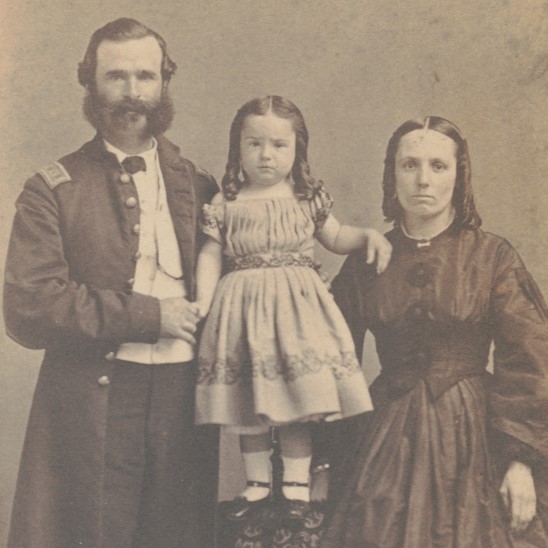Letters Home: Hannah Fleming Discusses Her Work on Our New Digital History Project
by Hannah Fleming | | Tuesday, October 17, 2023 - 14:35

My name is Hannah Fleming. I am a 4th year undergraduate student studying history with a concentration in War, Violence, and Society at the University of Virginia. I have always been interested in military history, and my time at the University of Virginia has fostered a deep passion for Civil War history. I became involved with the Nau Civil War Center after taking a course on the Civil War and Reconstruction with the Nau Center’s director, Dr. Caroline Janney, that motivated me to pursue research outside of the classroom.
I have been a Nau Center intern for a little over a year, working on our Letters Home digital history project. This project highlights the John L. Nau III Civil War History Collection, which resides in UVA’s Special Collections Library and contains 15,000 letters, diaries, and photographs from the Civil War era. My job is to read these letters and tag them using a list of themes, battles, and subject terms. Eventually, this data will be a part of a large primary resource database available to scholars around the world. In addition to tagging letters, I am responsible for researching the Civil War soldiers and their families. I use Ancestry.com, Fold3.com, and other online databases to gather information, including military records and birth and death dates. This summer, I was given the opportunity to extend my hours and devote more of my time to the project. This immersion was so valuable because it allowed me to develop a more intense and intimate connection with the material and solidified my interest in historical research.
At the center of any major political, cultural, or military event is the individual experience. The Letters Home project provides scholars with thousands of different voices and experiences of the Civil War. I have worked with letters ranging from average infantry soldiers all the way to generals and presidents on both sides of the conflict. I have found that, while the experiences of soldiers vary greatly based on many factors, including rank, side, and the location of their military service, no individual or group’s experience is more valuable than another. Letters written by the so-called “great men” of the war such as Abraham Lincoln, Ulysses S. Grant, Robert E. Lee, and Jefferson Davis, to name a few, tend to be focused on the logistics of the war. Their letters primarily discuss the movement of troops and materiel and coordination with other high-ranking officers and civilian leaders. On the other hand, letters written by the common foot soldier tell us more about the individual experience of life in the military. They give us insight into the daily lives of soldiers, whether in camp, on the march, or on the battlefield. These letters tend to be more personal, describing the authors’ emotions – longing for home, pride in their service to a cause, and fear of death.
The most important thing that I have learned while working with these letters is to remember the humanity of these people. Understanding that, while they do come from a very different era, each person lived a complex life. They loved their families, they worked to better their lives, and they had deep and meaningful relationships with each other. They made jokes, they cried, and they talked about love and sex. In many ways, these people differed very little from us. This has enabled me to understand and contextualize the individual experience within events of such importance as the Civil War. This will continue to shape the way I approach the study of the Civil War and history as a whole.
Public history is another passion of mine which has developed alongside my work with the Nau Center. I believe that visiting historical sites such as museums and battlefields is one of the most productive ways of studying history. Being able to explore and learn about an historical event on site is invaluable and provides perspectives that cannot be gained from books alone. This interest has taken me to some of the most important battlefields of the Civil War, including Manassas, Shiloh, Antietam, Gettysburg, and Petersburg. Before each visit, I use our database to find letters written during or about those battles. Reading the words of men who experienced these monumental battles firsthand has enhanced my experiences and understanding of the importance of these sites.
I would like to thank Dr. Caroline Janney, Dr. Brian Neumann, and Dr. Elizabeth Varon for their guidance, mentorship, and support. I would especially like to thank Dr. Varon, whose generosity afforded me the opportunity for an extended summer internship with the Nau Center. These scholars have been instrumental in my undergraduate work in Civil War history and my desire to pursue graduate level work and beyond.
